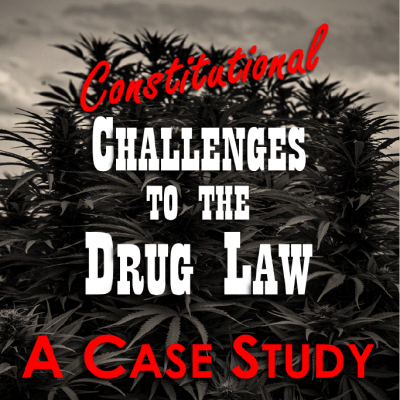
Book Presentation:
As the toll of policy increases, however, more and more people are questioning the drug war. And as the constitutionality of prohibition is yet again becoming contested, this case study presents an overview of the reasoning that has been used to uphold a criminalization of drugs.
The result is quite surprising. As shown, the judiciary’s treatment has not only been thin, but constitutional demands have been neglected every time a challenge has reached the courts.
Not once have prohibitionists proven the validity of their premises. Instead, justices have drawn upon prejudice to sustain the status quo, while appellants have been denied an opportunity to meaningfully challenge the law.
In sum, the study shows that drug policy has evolved unchecked by serious constitutional debate. Only very few have contemplated its constitutional implications from an informed perspective; those who have are unanimously rejecting the prohibition argument, and this case study explains why.
Indeed, arguing from the perspective of principled law, the author demonstrates that the prohibition argument is absolutely worthless. Professor of law Douglas Husak has noted that “it is a wealth of information” and that the “Attorney General needs to see it”. And he is right. As this book refutes every premise of prohibitionist reasoning, it does not only provide reform-activists with a powerful tool for change but it gives human rights defenders an argument for reform, one that is uncontestable from a constitutional point of view.”








